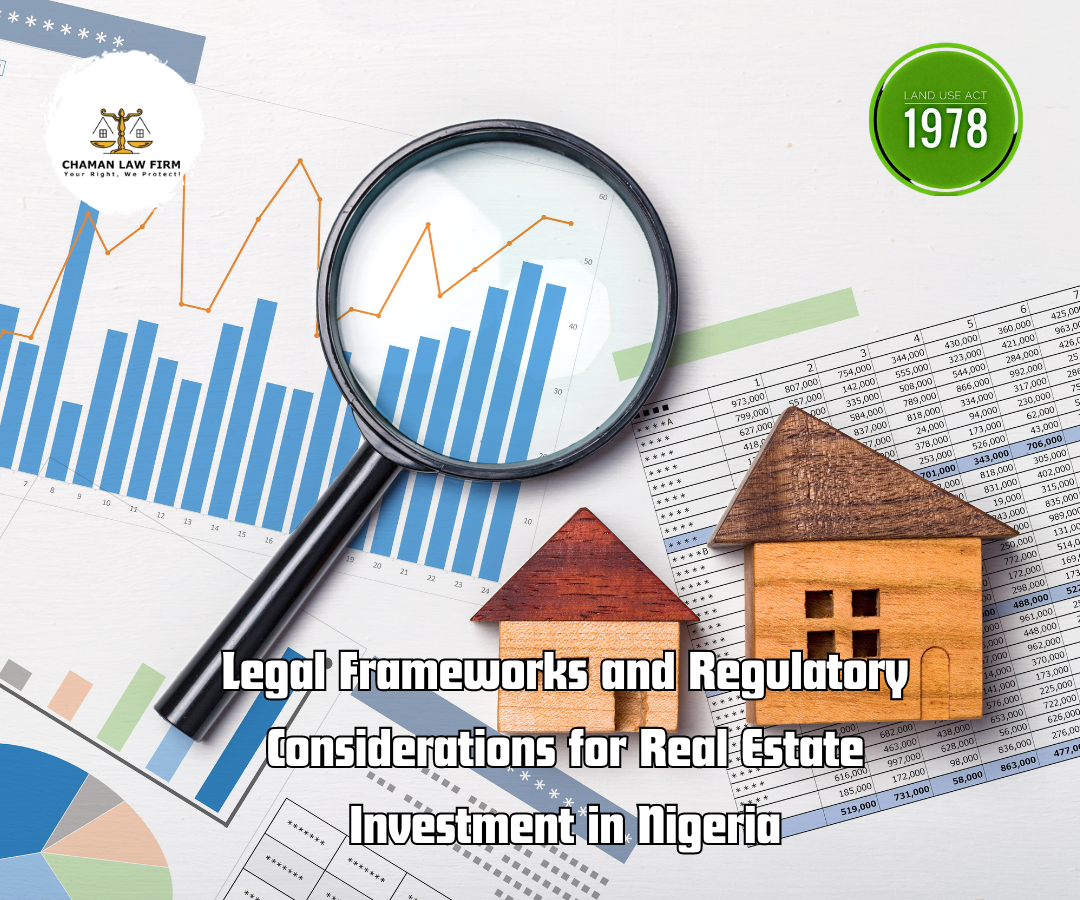
Real estate investment in Nigeria has gained significant traction in recent years, attracting both local and foreign investors. However, navigating the legal frameworks and regulatory landscape can be complex and challenging. This article aims to provide a detailed overview of the legal frameworks and regulatory considerations for real estate investment in Nigeria.
1. Land Ownership and Acquisition
In Nigeria, land is primarily owned by the government, and individuals and corporations can acquire land through various means. The Land Use Act of 1978 governs land ownership and regulates the process of acquiring land rights. It is important for investors to understand the procedures and requirements for land acquisition to ensure a valid and secure investment.
2. Property Registration
Property registration is a crucial step in real estate investment to establish legal ownership and protect the investor’s interests. The registration process is governed by the Land Instruments Registration Law, which requires the registration of all land transactions. Investors should engage the services of qualified legal professionals to ensure compliance with registration requirements.
3. Investment Vehicles
Investors have several options for structuring their real estate investments in Nigeria. These include setting up a company, forming a partnership, or operating as a sole proprietor. Each investment vehicle has its own legal and regulatory considerations, including tax obligations and liability limitations. Investors should carefully evaluate the pros and cons of each option before making a decision.
4. Financing and Mortgages
Securing financing for real estate projects in Nigeria can be challenging due to limited access to long-term capital. However, the government has introduced various initiatives, such as the National Housing Fund and the Mortgage Refinance Company, to promote affordable housing and facilitate mortgage financing. Investors should explore these options and work with financial institutions experienced in real estate financing.
5. Regulatory Compliance
Real estate investors in Nigeria must comply with various regulatory requirements, including obtaining necessary permits and approvals from relevant government agencies. These agencies include the Federal Ministry of Works and Housing, the Federal Inland Revenue Service, and the Corporate Affairs Commission. Non-compliance can result in penalties, fines, or even legal disputes, so investors must stay updated on regulatory changes and engage legal experts for guidance.
6. Tax Considerations
Tax obligations are an essential aspect of real estate investment in Nigeria. Investors must be aware of the applicable taxes, such as property tax, capital gains tax, and value-added tax. Understanding the tax implications and seeking professional advice can help investors optimize their tax positions and ensure compliance with tax laws.
7. Dispute Resolution
In the event of a dispute, investors should be familiar with the legal avenues available for resolution. Nigeria has both traditional courts and alternative dispute resolution mechanisms, such as arbitration and mediation. Including dispute resolution clauses in contracts and seeking legal advice can help protect investors’ interests and minimize potential disputes.
In conclusion, real estate investment in Nigeria offers lucrative opportunities, but it is essential for investors to understand the legal frameworks and regulatory considerations. By navigating the land acquisition process, ensuring proper property registration, choosing the right investment vehicle, securing financing, complying with regulations, considering tax implications, and planning for dispute resolution, investors can mitigate risks and maximize their returns in the Nigerian real estate market.

